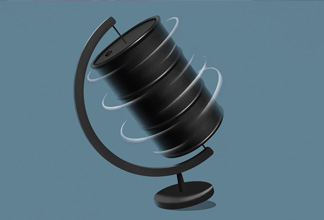For Tough Portfolio Decisions, Think of Helping a Friend
Written by Lisa Rostoks
Published on August 9, 2018
minute read
Share:
When it comes to making tough decisions, the best question may not be, “what should I do?" You might be better off asking what you would tell a friend to do if he or she were in the situation.
It's a behaviour that can help remove some of the emotion around decision-making and introduce objectivity to your thinking.
Psychologists call this strategy self-distancing. It's a behaviour that can help remove some of the emotion around decision-making and introduce objectivity to your thinking.
In a joint study conducted by psychologists at the Universities of Waterloo and Michigan, participants demonstrated more objective reasoning when they considered the options as choices that someone else had to make. They found that when reflecting on other people's problems, we can better recognize the limits of our own knowledge, the importance of compromise and future change, and consider different perspectives.
Take the endowment effect, for instance. This particular bias can lead investors to overvalue an investment, simply because they already own it.
This trick can come in handy when it comes to emotional biases when making investing decisions. Take the endowment effect, for instance. This particular bias can lead investors to overvalue an investment, simply because they already own it. There is an emotional attachment and ownership can lead people to hang on to a poor or average investment because they feel it's worth more than what it is in reality.
Think of it like a garage sale you have before downsizing to a smaller home. Most buyers will likely make an offer below your starting price on many items you've put up for sale. With the endowment effect, you may never sell that oversized armoire because your price expectations are unrealistic. The same one could be selling at the second-hand shop for less than you're asking, but you think yours is worth more. This can happen with investing when we place a higher value on our own holdings than what the market is telling us.
But if you were advising a friend or family member, you'd likely change your tune. According to the Waterloo-Michigan study, you might see that the reason for trying to sell the furniture in the first place, such as it's no longer useful or takes up too much space, is more important than obtaining a specific dollar amount.
When it comes to investing decisions, distancing yourself from the choices you're considering could just help overcome these limiting biases.
I used this trick when I was debating lopping off my hair for an edgy, short style, but feared it wouldn't suit me. I took the plunge when I realized I knew exactly how I would counsel a friend: Just do it! You're dreaming about it enough to clearly want it and you won't know how it fits or how you'll like it until you try it. (I admit, it may not be as major a decision as determining where to invest my retirement savings, but certainly tied to self-worth!)
When it comes to investing decisions, distancing yourself from the choices you're considering could just help overcome these limiting biases. By looking at the situation from many perspectives and assessing many outcomes, investors may be able to outsmart those personal biases we sometimes don't even know are at play.
RBC Direct Investing Inc. and Royal Bank of Canada are separate corporate entities which are affiliated. RBC Direct Investing Inc. is a wholly owned subsidiary of Royal Bank of Canada and is a Member of the Canadian Investment Regulatory Organization and the Canadian Investor Protection Fund. Royal Bank of Canada and certain of its issuers are related to RBC Direct Investing Inc. RBC Direct Investing Inc. does not provide investment advice or recommendations regarding the purchase or sale of any securities. Investors are responsible for their own investment decisions. RBC Direct Investing is a business name used by RBC Direct Investing Inc. ® / ™ Trademark(s) of Royal Bank of Canada. RBC and Royal Bank are registered trademarks of Royal Bank of Canada. Used under licence.
© Royal Bank of Canada 2025.
Any information, opinions or views provided in this document, including hyperlinks to the RBC Direct Investing Inc. website or the websites of its affiliates or third parties, are for your general information only, and are not intended to provide legal, investment, financial, accounting, tax or other professional advice. While information presented is believed to be factual and current, its accuracy is not guaranteed and it should not be regarded as a complete analysis of the subjects discussed. All expressions of opinion reflect the judgment of the author(s) as of the date of publication and are subject to change. No endorsement of any third parties or their advice, opinions, information, products or services is expressly given or implied by RBC Direct Investing Inc. or its affiliates. You should consult with your advisor before taking any action based upon the information contained in this document.
Furthermore, the products, services and securities referred to in this publication are only available in Canada and other jurisdictions where they may be legally offered for sale. Information available on the RBC Direct Investing website is intended for access by residents of Canada only, and should not be accessed from any jurisdiction outside Canada.
Explore More

The Hidden Costs of Being Single
How single Canadians can build wealth on their own terms
minute read

What Investors Can Learn from Hockey Star and RBC Olympian Sarah Nurse
Nurse's path to the podium reveals how preparation, planning and practice can turn potential into a golden opportunity
minute read

Crude Questions? A Look at Canada’s Oil Economy
What you need to know about Canada’s oil industry
minute read
Inspired Investor brings you personal stories, timely information and expert insights to empower your investment decisions. Visit About Us to find out more.







